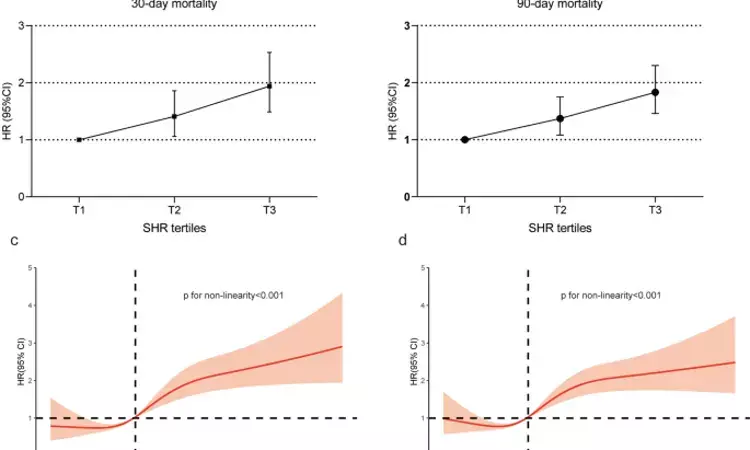- Home
- Medical news & Guidelines
- Anesthesiology
- Cardiology and CTVS
- Critical Care
- Dentistry
- Dermatology
- Diabetes and Endocrinology
- ENT
- Gastroenterology
- Medicine
- Nephrology
- Neurology
- Obstretics-Gynaecology
- Oncology
- Ophthalmology
- Orthopaedics
- Pediatrics-Neonatology
- Psychiatry
- Pulmonology
- Radiology
- Surgery
- Urology
- Laboratory Medicine
- Diet
- Nursing
- Paramedical
- Physiotherapy
- Health news
- Fact Check
- Bone Health Fact Check
- Brain Health Fact Check
- Cancer Related Fact Check
- Child Care Fact Check
- Dental and oral health fact check
- Diabetes and metabolic health fact check
- Diet and Nutrition Fact Check
- Eye and ENT Care Fact Check
- Fitness fact check
- Gut health fact check
- Heart health fact check
- Kidney health fact check
- Medical education fact check
- Men's health fact check
- Respiratory fact check
- Skin and hair care fact check
- Vaccine and Immunization fact check
- Women's health fact check
- AYUSH
- State News
- Andaman and Nicobar Islands
- Andhra Pradesh
- Arunachal Pradesh
- Assam
- Bihar
- Chandigarh
- Chattisgarh
- Dadra and Nagar Haveli
- Daman and Diu
- Delhi
- Goa
- Gujarat
- Haryana
- Himachal Pradesh
- Jammu & Kashmir
- Jharkhand
- Karnataka
- Kerala
- Ladakh
- Lakshadweep
- Madhya Pradesh
- Maharashtra
- Manipur
- Meghalaya
- Mizoram
- Nagaland
- Odisha
- Puducherry
- Punjab
- Rajasthan
- Sikkim
- Tamil Nadu
- Telangana
- Tripura
- Uttar Pradesh
- Uttrakhand
- West Bengal
- Medical Education
- Industry
Raised stress hyperglycaemia ratio associated with increased mortality risk after MI and ischaemic stroke: Study

Raised stress hyperglycaemia ratio is associated with increased mortality risk after MI and ischaemic stroke suggests a study published in the Cardiovascular Diabetology.
A raised stress hyperglycaemia ratio (SHR) has been associated with all-cause mortality and may better discriminate than an absolute glucose value. The aim of this meta analysis and systematic review is to synthesise the evidence assessing the relationship between the SHR and all-cause mortality across three common cardiovascular presentations.
They undertook a comprehensive search of Medline, Embase, Cochrane CENTRAL and Web of Science from the date of inception to 1st March 2024, and selected articles meeting the following criteria: studies of patients hospitalised for acute myocardial infarction, ischaemic stroke or acute heart failure reporting the risk (odds ratio or hazard ratio) for all-cause mortality associated with the SHR. A random effects model was used for primary analysis.
Subgroup analysis by diabetes status and of mortality in the short and long term was undertaken. Risk of bias assessment was performed using the Newcastle Ottawa quality assessment scale. Results: A total of 32 studies were included: 26 studies provided 31 estimates for the meta-analysis.
The total study population in the meta analysis was 80,010. Six further studies were included in the systematic review. Participants admitted to hospital with cardiovascular disease and an SHR in the highest category had a significantly higher risk ratio of all-cause mortality in both the short and longer term compared with those with a lower SHR (RR = 1.67 [95% CI 1.46–1.91], p < 0.001). This finding was driven by studies in the myocardial infarction (RR = 1.75 [95% CI 1.52–2.01]), and ischaemic stroke cohorts (RR = 1.78 [95% CI 1.26–2.50]). The relationship was present amongst those with and without diabetes (diabetes: RR 1.49 [95% CI 1.14–1.94], p < 0.001, no diabetes: RR 1.85 [95% CI 1.49–2.30], p < 0.001) with p = 0.21 for subgroup differences, and amongst studies that reported mortality as a single outcome (RR of 1.51 ([95% CI 1.29–1.77]; p < 0.001) and those that reported mortality as part of a composite outcome (RR 2.02 [95% CI 1.58–2.59]; p < 0.001). On subgroup analysis by length of follow up, higher SHR values were associated with increased risk of mortality at 90 day, 1 year and > 1year follow up, with risk ratios of 1.84 ([95% CI 1.32–2.56], p < 0.001), 1.69 ([95% CI 1.32–2.16], p < 0.001) and 1.58 ([95% CI 1.34–1.86], p < 0.001) respectively.
A raised SHR is associated with an increased risk of all-cause mortality following myocardial infarction and ischaemic stroke. Further work is required to define reference values for the SHR, and to investigate the potential effects of relative hypoglycaemia. Interventional trials targeting to the SHR rather than the absolute glucose value should be undertaken.
Reference:
Esdaile, H., Khan, S., Mayet, J. et al. The association between the stress hyperglycaemia ratio and mortality in cardiovascular disease: a meta-analysis and systematic review. Cardiovasc Diabetol 23, 412 (2024).https://doi.org/10.1186/s12933-024-02454-1
Dr. Shravani Dali has completed her BDS from Pravara institute of medical sciences, loni. Following which she extensively worked in the healthcare sector for 2+ years. She has been actively involved in writing blogs in field of health and wellness. Currently she is pursuing her Masters of public health-health administration from Tata institute of social sciences. She can be contacted at editorial@medicaldialogues.in.
Dr Kamal Kant Kohli-MBBS, DTCD- a chest specialist with more than 30 years of practice and a flair for writing clinical articles, Dr Kamal Kant Kohli joined Medical Dialogues as a Chief Editor of Medical News. Besides writing articles, as an editor, he proofreads and verifies all the medical content published on Medical Dialogues including those coming from journals, studies,medical conferences,guidelines etc. Email: drkohli@medicaldialogues.in. Contact no. 011-43720751


